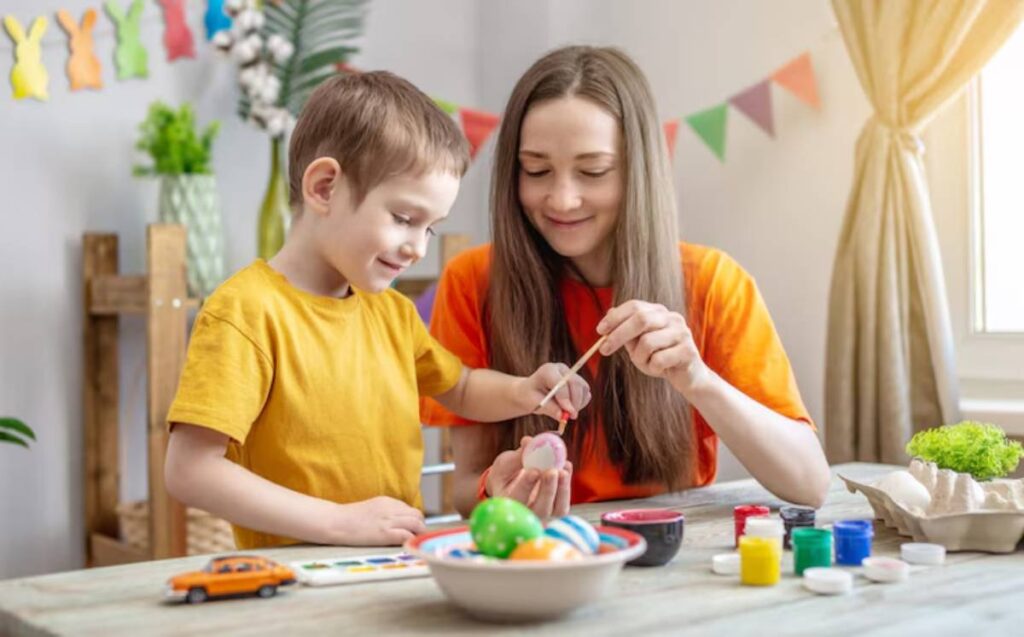The Education Blog

Best Extracurricular Activities for Homeschooled Kids
When you’re homeschooling, it’s easy to focus so much on academics that extracurriculars take a back seat. But here’s the thing — extracurricular activities aren’t just optional extras. They play a huge role in shaping your child’s social, emotional, and physical development.
Think about it In a traditional school, children naturally have access to clubs, sports, music lessons, and group events. These experiences teach teamwork, build confidence, and offer a healthy break from the books. Homeschoolers need — and deserve — those same enriching opportunities.
The good news? As a homeschooling parent, you actually have the freedom to handpick activities that match your child’s interests, strengths, and schedule. Whether it’s team sports, music, coding, or volunteering, there’s an activity out there that can complement your educational goals beautifully.
This guide explores the top homeschool activities, including structured afterschool programmes and sports for homeschoolers, all designed to help your child thrive both inside and outside the home classroom.
The Benefits of Extracurricular Activities
Before diving into specific ideas, let’s look at why these activities are worth your time and energy.
1. Social Development
Extracurriculars are one of the best ways for homeschooled children to build social skills. Interacting with peers, cooperating on a team, and facing wins and losses together helps children grow in confidence and empathy.
2. Physical Health
Active programmes like swimming, martial arts, or team sports keep children moving. This is crucial if your homeschool schedule involves long periods of seated work.
3. Academic Enrichment
Believe it or not, non-academic activities can enhance academic performance. Music, for example, has been linked to improved maths and reading skills.
4. Personal Growth
Learning something new outside of their regular studies allows children to discover passions, build discipline, and gain a sense of accomplishment.
Sports for Homeschoolers: Building Confidence and Fitness
Many parents worry about how to include sports for homeschoolers when they’re not tied to a school team. But there are loads of community options that welcome homeschooled kids.
Popular Sports Options:

- Swimming: A life skill that also boosts cardiovascular health.
- Martial arts (karate, taekwondo, jiu-jitsu): These develop focus, respect, and discipline.
- Football or rugby leagues: Many towns have youth leagues open to all.
- Gymnastics and dance: Great for balance, coordination, and self-expression.
- Rock climbing or parkour classes: Ideal for adventurous kids who love physical challenges.
Tip: Look for clubs that offer weekday sessions — these are often quieter and more flexible for homeschoolers.
Creative Arts: Fuel for Imagination
Creative expression is a key part of any well-rounded education. Art-based extracurriculars help kids process emotions, express themselves, and develop critical thinking.
Activities to Consider:
- Drawing or painting workshops
- Music lessons (guitar, piano, violin, etc.)
- Drama and theatre clubs
- Photography classes
- Craft groups or maker spaces
If you’re part of a local homeschool co-op, you could also explore group teaching strategies that work at home — art projects are perfect for collaborative learning.
STEM Activities: Making Learning Fun and Hands-On
Many children learn best by doing — especially when it comes to science, technology, engineering, and maths. Hands-on STEM activities are both fun and educational.
Look For:

- Coding clubs (Scratch, Python, or game design for kids)
- Robotics teams or LEGO engineering groups
- Science centres with homeschool workshops
- Nature hikes or outdoor science programmes
- Maths enrichment classes or puzzle clubs
Even something simple like a home experiment day can spark big curiosity — and who knows, maybe a future scientist too.
Language and Culture: Broadening Horizons
Extracurriculars that introduce your child to new languages and cultures can be a wonderful extension of their curriculum.
Options to Explore:
- Foreign language classes (French, Spanish, Mandarin, etc.)
- Cultural dance or music groups
- Pen pal programmes or virtual language exchanges
- Language-based storytelling clubs
Exposure to different ways of thinking builds empathy and global awareness — important skills in today’s world.
Outdoor and Nature-Based Activities
Homeschooling gives you the chance to connect learning with the natural world in ways that traditional schooling often can’t.
Great Choices:
- Forest schools: These use woodland settings to teach survival skills, ecology, and teamwork.
- Gardening clubs: A mix of biology, responsibility, and hands-on fun.
- Wildlife monitoring groups: Birdwatching or insect tracking can be surprisingly thrilling.
- Adventure clubs: Think hiking, kayaking, or geocaching.
These activities promote calm, resilience, and appreciation for the environment — all valuable life traits.
Volunteering and Community Service
Helping others builds character. Volunteering is also a wonderful way to connect with the wider world and learn from real-life experiences.
Ideas That Work for Homeschoolers:

- Helping at animal shelters or food banks
- Assisting younger children in storytime groups
- Visiting care homes to read or sing
- Joining local environmental clean-up events
You can learn more about fostering civic engagement in volunteering and community service in homeschooling.
Clubs and Groups: Community Connection
Joining a local club can offer structured enrichment and a sense of belonging.
Try:
- Scouts or Guides: Classic groups that blend skill-building with fun.
- Chess clubs: Great for strategic thinking.
- Book clubs: Encourage reading for pleasure and discussion.
- Public speaking groups (like junior Toastmasters)
- Coding or gaming guilds
These clubs aren’t just about learning — they’re about friendship, commitment, and shared interests.
Online Activities for Flexibility and Access
If you live in a rural area or have a tricky schedule, online extracurriculars can open up a world of possibilities.
Online Extracurricular Options:
- Virtual music or art lessons
- Live science shows or interactive experiments
- Digital language exchanges
- Virtual pen pals or global study groups
- eSports or gaming clubs (especially for older kids)
Just make sure screen time is balanced with offline interaction to support overall development.
How to Choose the Right Activities
With so many options, it can feel overwhelming to choose.
Think About:
- Your child’s interests Follow their curiosity — not just what you think they should do.
- Your weekly schedule Avoid cramming too much in. Downtime matters too.
- Your budget Many great programmes are free or low-cost.
- Opportunities for growth Aim for activities that challenge but don’t frustrate.
You might also rotate activities by term or season — one for physical movement, one creative, and one academic.
Enrich Learning Through Life
Homeschooling gives you the freedom to shape a full, rich educational journey for your child, and extracurricular activities are a powerful part of that picture.
They build confidence, introduce new passions, encourage friendships, and give kids real-world experiences that books alone can’t offer. Whether your child loves to run, paint, build, code, or care for others, there’s something out there that will light them up.
Start small. Follow your child’s lead. Mix it up. The goal isn’t to do everything — it’s to find the right things that make learning joyful and life well-rounded.
Now’s the time to explore what’s out there. Look up local clubs, talk to other homeschool families, or try an online session together. Your next great adventure might just begin outside the classroom.









